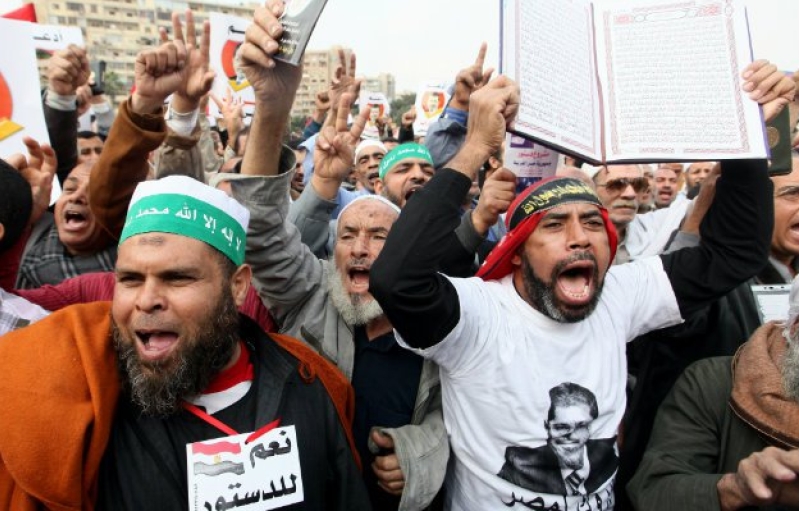
A British government review into Egypt's outlawed Muslim Brotherhood published on Thursday concluded that membership of or links to the political group should be considered a possible indicator of extremism but that it should not be banned.
The long-delayed review into the organization was first commissioned in April 2014 by Prime Minister David Cameron with a remit to examine whether the group put British national security at risk.
"Parts of the Muslim Brotherhood have a highly ambiguous relationship with violent extremism. Both as an ideology and as a network it has been a rite of passage for some individuals and groups who have gone on to engage in violence and terrorism," Cameron said in a statement, describing the group as "deliberately opaque, and habitually secretive".
"The main findings of the review support the conclusion that membership of, association with, or influence by the Muslim Brotherhood should be considered as a possible indicator of extremism."
Egyptian President Abdel Fattah al-Sisi launched the toughest crackdown on Islamists in Egypt's modern history after toppling President Mohamed Mursi of the Brotherhood in 2013.
Sisi classifies the Brotherhood as a terrorist group, but on a visit to Britain in November he said it could again play a role in public life if Egyptians wanted it to return.
The Brotherhood, the Middle East's oldest Islamist movement and long Egypt's main political opposition, says it is committed to peaceful activism designed to reverse what it calls a military coup in 2013.
Cameron said Muslim Brotherhood-associated and influenced groups had sometimes characterized Britain as fundamentally hostile to Muslim faith and identity and expressed support for attacks conducted by Palestinian Islamist group Hamas.
"Aspects of the Muslim Brotherhood's ideology and activities therefore run counter to British values of democracy, the rule of law, individual liberty, equality and the mutual respect and tolerance of different faiths and beliefs," he said.
Cameron said the government would keep under review the views and activities of Muslim Brotherhood associates in Britain and whether the group met the legal test for proscription as a terrorist organization.
Britain will also continue to refuse visas to members and associates the group who have made extremist comments, he said, and intensify its scrutiny of the views and activities Muslim Brotherhood members, associates and affiliates promote overseas.






